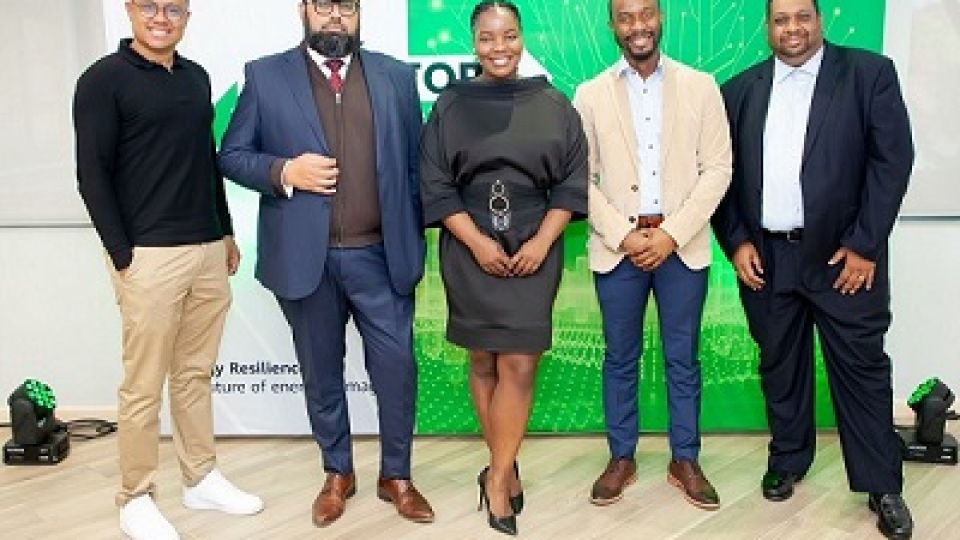by MTHULISI SIBANDA
Africa Editor
JOHANNESBURG, (CAJ News) – SOUTH Africa might be going through its most severe power crisis in living memory, but this has created opportunities for innovation, especially given the continent’s abundant natural resources.
These can be harnessed for renewable energy supply.
This is according to experts at Huawei’s annual information and communication technology (ICT) Editors Xchange event, held in Johannesburg.
Held under the theme, “Energy Resilience: The Future of Energy Reimagined”, the event brought together leading companies working to support business and households during South Africa’s energy crisis.
A panel of experts in technology, energy, finance and academia came together at Huawei’s Innovation Centre to discuss the issues of energy security and sustainability, the growth of small businesses and their capacity to create jobs in a challenging operating environment.
Muhammed Ismail Seedat, Huawei’s Senior Systems Architect, Digital Power Sub-Saharan Africa Region, spoke of the prospects of innovation, mentioned the abundance of natural resources in Africa and how these could be utilised for renewable energy.
Seedat delivered the keynote at the ICT Editors Xchange.
His remarks came on the heels of the release of the Renewable Energy Grid Survey for 2023, prepared by Eskom, the South African Wind Energy Association (SAWEA) and the South African Photovoltaic Industry Association (SAPVIA).
The survey shows a significant pipeline of 66GW (66, 000 MW) of solar, wind, battery and gas projects in South Africa which, if implemented, could help address the country’s load shedding issues.
At the panel discussion moderated by Jimmy Moyaha, members of the panel spoke about the impact of renewable energy alternatives on the environment, communities, township economies and SMMEs from their respective perspectives and the role that Huawei’s advanced technologies have to play in providing sustainable energy solutions for South Africa and the continent.
Dr Patrick Ebowa, Senior Lecturer in Tshwane University of Technology’s (TUT) Department of Management and Entrepreneurship, spoke about the importance of making SMMEs part of the entire value chain of the country’s energy solution, and not just the beneficiaries.
Working ‘on the ground’, they are well positioned to be part of the solution for the provision of a reliable and affordable power supply, and should be more empowered to provide local solutions to local challenges, Ebowa said.
Bridgett Majola, Head of Project Finance: Energy and Infrastructure with CMS South Africa, commended public and private financial institutions for the increased focus on making sustainable investments, particularly in the energy space.
“Rhetoric around environmental, social and corporate governance (ESG) issues is becoming more positive and meaningful, allowing for the impact of energy issues to be more measurable,” she said.
Norsad Capital’s Zubair Suliman, Head of Infrastructure and Investment Director, said, “The current global energy crisis has had at least one positive outcome, which is to force the world to address the issue of climate change.”
Prinaven Naidoo, Solar Channel Manager, Huawei Digital Power Business Unit outlined his company’s capacity to design and roll out sustainable energy solutions for commerce, industry and in the residential sector.
“Digital power is the fastest growing business unit within Huawei, representing 60 percent growth, and the company is the largest manufacturer of inverters in the world,” Naidoo said.
Besides innovative technology to create photovoltaic (PV) plants and storage solutions, Huawei has a number of ICT skills and training programmes including “A Thousand Digital Power Talents” which trains installers.
Huawei’s role as the leading provider of digital energy solutions makes the company a significant player in the quest to ensure Africa’s energy sovereignty and security.
The company has developed technology that functions even on a weak power grid and is part of the acceleration of clean energy development.
“In a complex environment, Huawei is providing simple, straightforward solutions to the continent’s and indeed the world’s energy crisis,” Seedat said.
– CAJ News

